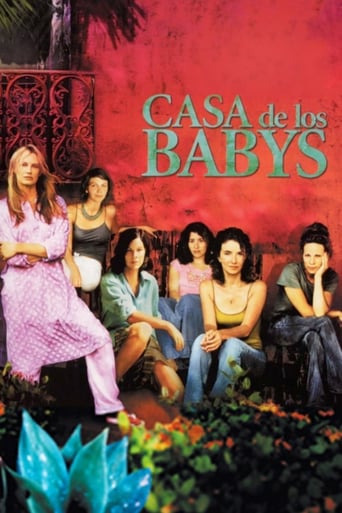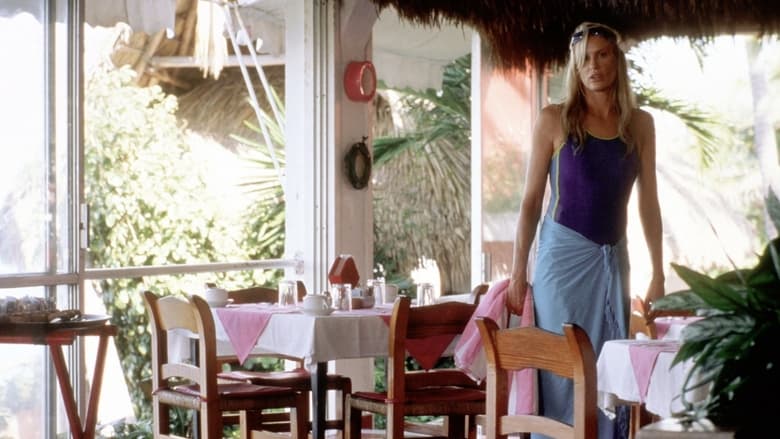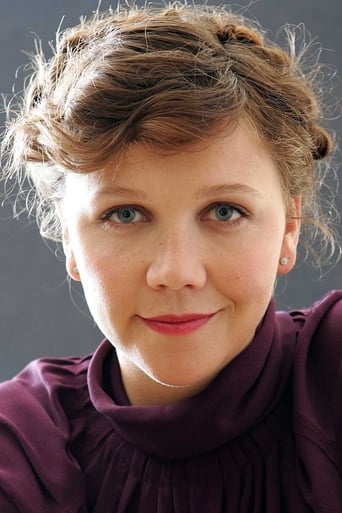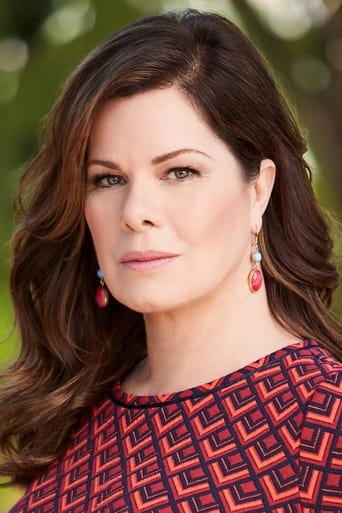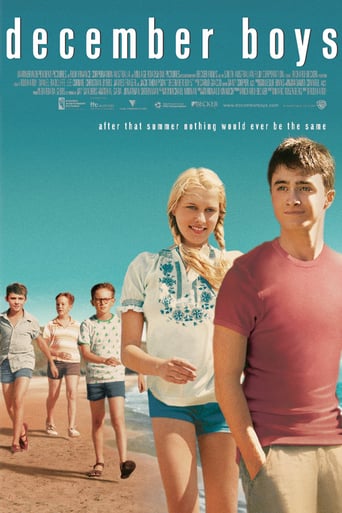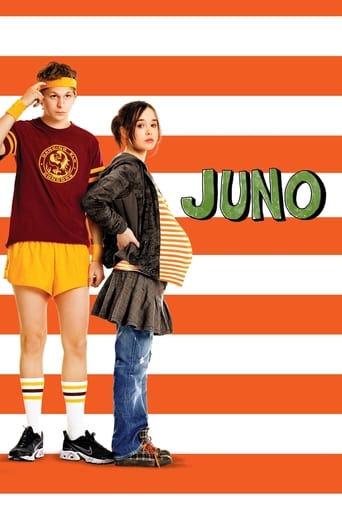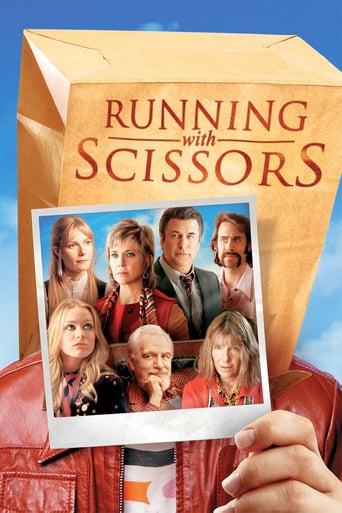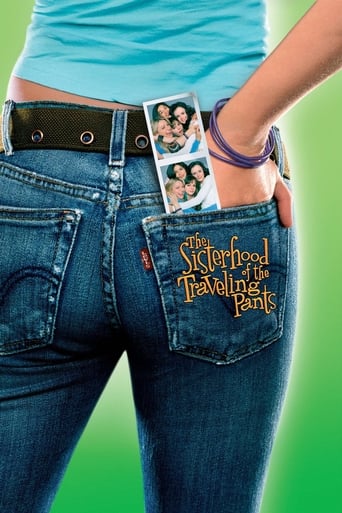Casa de los Babys (2003)
A group of women, including Skipper, the wealthy young Jennifer and the domineering Nan, journey from the United States to South America in hopes of easily adopting children. Unfortunately, their plans are complicated by local laws that require the women to live in the foreign nation for an extended period before they can take in orphaned kids. While stuck in another country, the women bond as they share their aspirations and anxieties.
Watch Trailer
Free Trial Channels
Cast


Similar titles
Reviews
Highly Overrated But Still Good
It isn't all that great, actually. Really cheesy and very predicable of how certain scenes are gonna turn play out. However, I guess that's the charm of it all, because I would consider this one of my guilty pleasures.
Mostly, the movie is committed to the value of a good time.
There is, somehow, an interesting story here, as well as some good acting. There are also some good scenes
There's a moment in Johns Sayles' latest film, Casa De Los Babys, that is among the most poignant ever filmed. A young maid in an unnamed Latin American country's main baby mill is engaged in a conversation with an Irish woman down to adopt. The Irish woman, Eileen (Susan Lynch, from Sayles' The Secret of Roan Inish), does not speak Spanish and gives a poignant tale about her life and desire for a child, and then the Spanish girl, Asuncion (Vanessa Martinez, from Sayles' 'Lone Star'), tells of giving a baby of hers up for adoption four years earlier, and both women touch each other, with the quiver of their voices and the emotion of their eyes. Eileen rhapsodizes about getting a child and her desires to be a good mother, as she always dreamt of, while Asuncion, understands nothing of what is said, but empathically 'gets it', because she gave up her child. She imagines the earnestness in Eileen and imagines her child is with a mother like Eileen. It's a terrific moment that uses words to show how superfluous words can be.This is why Sayles is not only the premier independent filmmaker, but flat-out one of the best around, if not in film history . It is not the best film that John Sayles has ever made, and that may be simply that it was too short, at barely over an hour and a half- the first film since the Gwyneth Paltrow film Great Expectations, that probably could have used an extra 30-40 minutes, but it is a good one. Unfortunately there is only one Sayles around that makes these sorts of films on a consistent basis.
Six American women have traveled to a South American country in order to adopt a baby. They are housed at a hotel for several months as the process takes some time. One of the them is a health nut who lost three babies of her own. Two wealthy ones are determined to adopt for their husbands' sakes and three single women long for the chance to become parents. Intermingled with their stories are tales of the mostly hapless natives of the country. There is a pregnant teen who is a shame to her mother, a young housekeeper who had to give her own baby up for adoption in order to support her family, and a young man with a dream to go to the United States and become wealthy. In other words, the story is tantalizing. Who, if any, will benefit from the situation? The story here is first rate. Human nature is shown at its best and at its absolute worst (Marcia Gay Harden's character is certainly one of the most despicable persons ever put on screen). Countries must make difficult choices for economic reasons and children are thus reduced, to some extent, to being commodities. The last scene of the movie is a stunner, summarizing the film in a heart-wrenching conclusion. Although the pace is slow, those who stick with this film will be both rewarded by it's scope and distraught over it's contents. Movie viewers who love films with merit and bite will find this one a top choice.
John Sayles, always an intriguing filmmaker, has come up with yet another conversation-starting film in "Casa de los Babys," a subtle exploration of the great divide that separates the haves from the have-nots in this maddeningly imbalanced world of ours. Sayles sets his story at a "hotel" in South America, one designed to cater specifically to American women who are waiting to adopt children to take back with them to the States. Due to bureaucratic red tape, many of the ladies Sayles introduces us to have been holed up in the hotel for months. Except for contact with the resort staff and the occasional foray into the local neighborhood, the women are essentially sealed off from the cultural and socioeconomic realities of the world around them.The thing that separates Sayles' work from that of so many other socially conscious filmmakers is that he is scrupulously fair in his approach, refusing to pigeonhole any one group of people while allowing us to see the imperfections and humanity inherent in those on both sides of the divide. It would have been so easy for him to have portrayed the women as merely spoiled Americans, exploiting the poor of the world for their own selfish benefit. Indeed, one of the men who helps run the hotel decries the ladies as gringo "imperialists," looking to buy Hispanic babies as if they were strolling through the local market. Yet, his mother, who manages the resort and who also resents the imperialistic tone of some of the women, is pragmatic enough to know that this is a "business" like any other, and that the alternative for many of these orphans would be far grimmer if they were forced to fend for themselves out on the streets. In fact, the children in the facility, who are well cared for and who have some hope for the future, are in direct counterpoint to all the youngsters we see who are living in cardboard boxes, forced to wash windshields, beg from tourists, or steal to survive.Of the American women, the most interesting is Nan (beautifully played by Marcia Gay Harden), who is the most obnoxiously pushy and least culturally sensitive of the group. We get the feeling that the moment she gets her hands on her new child, she will go to work draining every ounce of ethnicity from his or her soul and spirit. The other women are all far more open and tolerant than she is, being mainly concerned with filling that childless void located deep within themselves. The film is, in large part, a series of revealing conversations, in which the women voice their fears, concerns, visions and hopes about life as a parent.The movie does an interesting job conveying the universality of motherhood, for despite the economic and language barriers that separate them, both the women yearning for babies and the women being forced to give their babies up for adoption are able to meet on the common ground of maternity.In addition to Harden, there are excellent performances from Mary Steenbergen, Lili Taylor, Daryl Hannah, Maggie Gyllenhall and Susan Lynch as the American women, and Rita Moreno as the hotel manager who understands how the world works even if she doesn't fully approve of it. Each actress manages to create an interesting, fully realized character out of only a limited amount of screen time.If there's a criticism to be leveled against the film, it is that Sayles leaves a few too many loose ends hanging at the end. As a storyteller, he has never been all that interested in conventional narrative, so this shouldn't surprise us, but we do sense that he could have gone a bit further with his characters here. As it is, "Casa de los Babys" feels somewhat incomplete, more like an exercise - albeit a fascinating one - than a full-fledged drama. Still, for its clear-eyed, three-dimensional and nonjudgmental take on a tricky subject, "Casa de los Babys" is a film well worth seeing.
I have been a huge fan of John Sayes for a number of years. I think of him as one of the very best directors. I've managed to track down every single movie he's done. I anxiously await each new one he does every two years. This time I was very angry and disappointed. On the Special Features on the DVD, Sayes tells us how he has spent so much time in South America and really "knows" the people. Yet his political perspective on the international adoption process is extremely one sided and very anti-adoption. Seems like he just met the "Che Guevera" segment of South America (the gringos are stealing our babies). This is a uniquely bad experience for me from all his movies. I always felt that I had a total experience from each one of them; not just one extreme point of view. From a cinematography and acting point of view, the movie was good, but not quite up to Sayes greatness.

